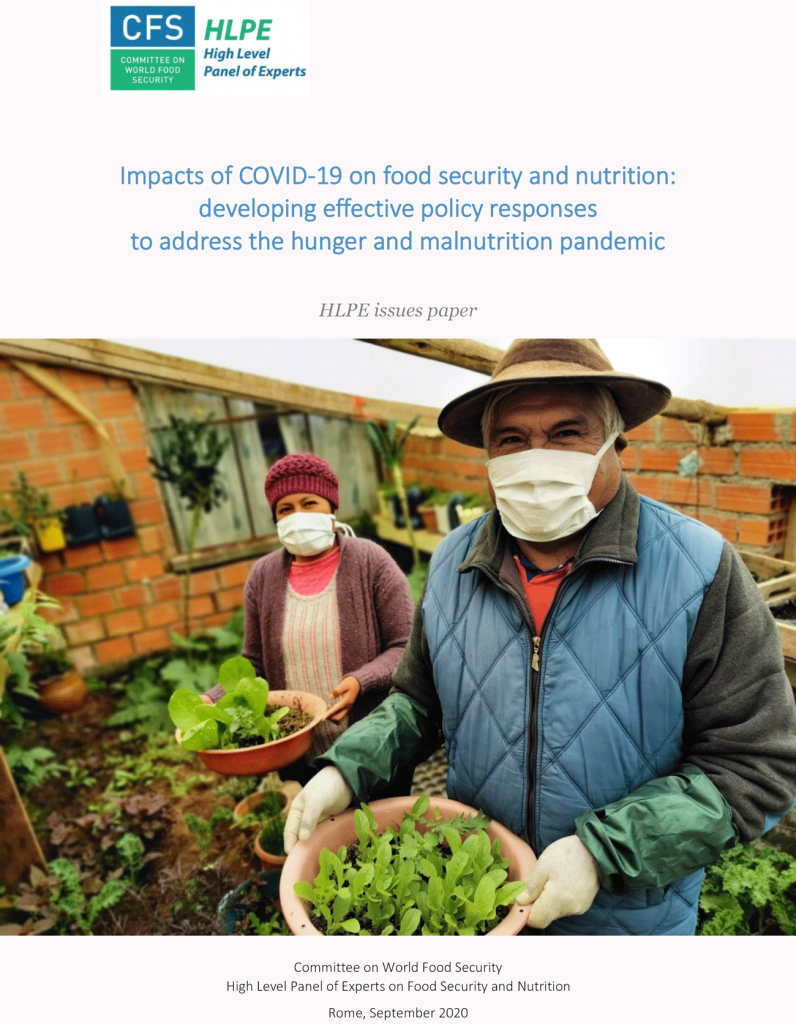Impacts of COVID-19 on food security and nutrition: developing effective policy responses to address the hunger and malnutrition pandemic
The COVID-19 pandemic that has spread rapidly and extensively around the world since late 2019 has had profound implications for food security and nutrition. The unfolding crisis has affected food systems1 and threatened people’s access to food via multiple dynamics. We have witnessed not only a major disruption to food supply chains in the wake of lockdowns triggered by the global health crisis, but also a major global economic slowdown. These crises have resulted in lower incomes and higher prices of some foods, putting food out of reach for many, and undermining the right to food and stalling efforts to meet Sustainable Development Goal (SDG) 2: “Zero hunger.” The situation is fluid and dynamic, characterized by a high degree of uncertainty. According to the World Health Organization, the worst effects are yet to come (Ghebreyesus, 2020; Khorsandi, 2020). Most health analysts predict that this virus will continue to circulate for a least one or two more years (Scudellari, 2020).
Download the all document : here !

